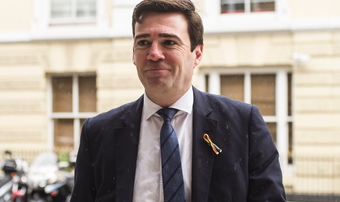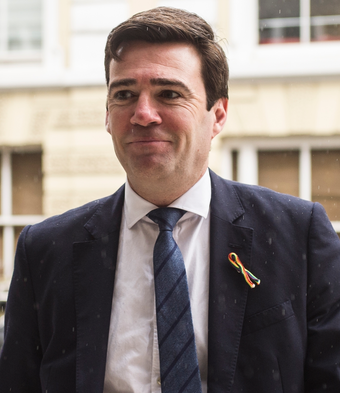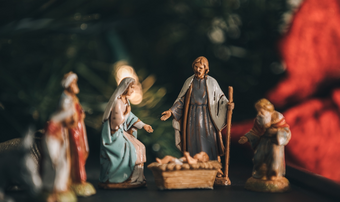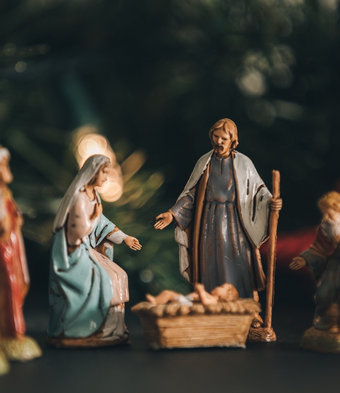Why we should all care about the new Pope
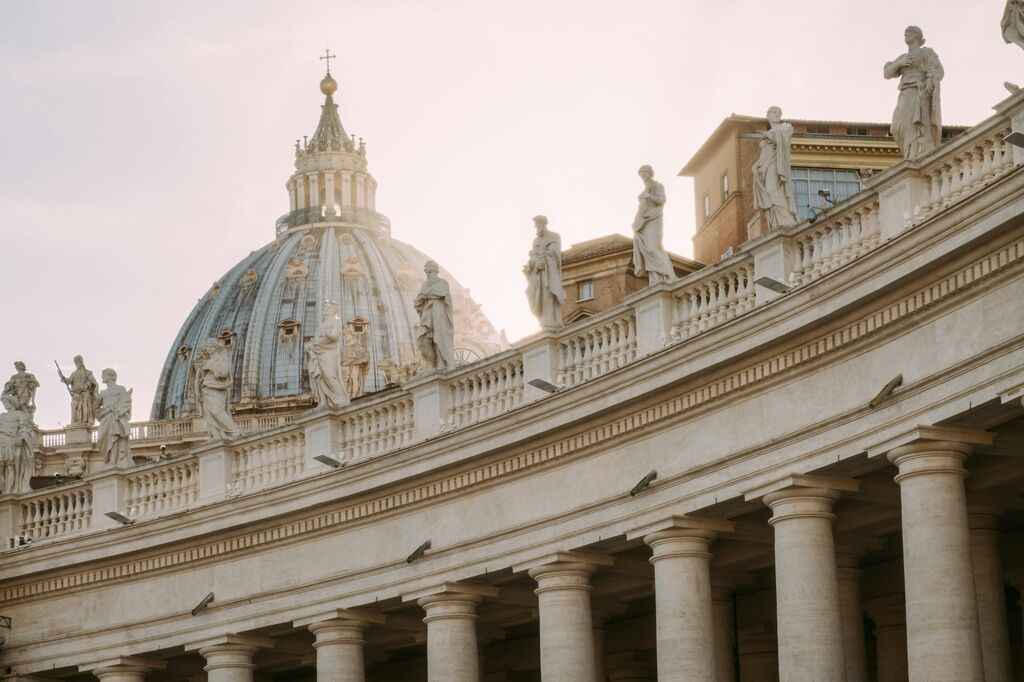
Whatever you think of it, the Catholic church certainly knows how to do theatre. The eyes of the world turned to St. Peter’s Square yesterday evening, as the famous white smoke arose from the chimneys of the Sistine Chapel. ‘Habemus Papam’, pronounced Cardinal Mamberti to thousands of delighted onlookers, before Cardinal Robert Francis Prevost, the first ever American to be elected, emerged onto the balcony as the new Pope Leo XIV.
In the days after Pope Francis’ death, the viewership of the 2024 film Conclave reportedly rose by 283%. It may have been rocked with scandals in recent decades, but Rome - and what goes on when the doors are shut - still captures the imagination of the world.
Of course, to those of us who are not avid Vatican-watchers (which I suspect is the majority to us!), the names of the Cardinals who were supposedly in the running for the Papacy meant as little to us as the new names being linked with the now-vacant position of manager of my beloved Watford FC. The recently-sacked Tom Cleverley was not reportedly considered to be in the running to take up the keys of St. Peter.
But irrespective of whether you’ve found yourself gripped by what’s been going on, or actually just a bit bewildered, the election of a new Pope is a moment of huge significance; and not just for Catholics. Upon the election of Pope Francis, 12 years ago, the American pastor Chris Castaldo wrote for The Gospel Coalition, “Whether we like it or not, the pope is, in a certain (global) sense, the single most significant Christian voice in the world.”
I’m conscious, as I write, that some of us will have different perspectives on Catholicism and the Papacy, whether that is for theological, historical, or personal reasons. This isn’t the place to explore the relationship between different denominations, or the different nuances we might hold to around particular doctrines.
Some reading this might view those differences as wide; others might believe that they are over-stated. And of course, some reading this will be Catholic themselves!
For the sake of transparency - as it’s difficult to fully hide your biases - my own view would echo these words from Professor Tony Lane’s summary: “When the difference in terminology is taken into account and when allowance is made for complementary formulations, the gap turns out to be considerably narrower than is often popularly supposed, but a gap there remains.”
But regardless of whether you tend towards being more ecumenical, or whether you’ve been brushing up on your 95 theses, here are four reasons why we should all care about the new Pope, and about Catholicism more generally.
1. The Pope matters for politics
At CARE, we regularly work alongside (and are thankful for the support of) those with whom we would not agree on everything. We look to form common ground and to build alliances with people and organisations who are our co-belligerents, recognising that this gives us far wider potential to make an impact. In a sense, this is simply how politics works; if you don’t win a majority government, you have to form a coalition!
In that vein, we are strictly politically neutral, and we regularly work alongside people from each of the different parties. But it also means that we regularly work alongside people of different faiths, if they share the same goals as us, or indeed, in today’s world, people of no faith at all. Some of our strongest allies currently in the battle against Kim Leadbeater’s Terminally Ill Adults (End of Life) Bill, which would introduce Assisted Suicide in England and Wales, are not Christians.
And others are Catholics! Just last month, Cardinal Nichols, the Archbishop of Westminster and one of three Cardinals in England, wrote to thousands of Catholics encouraging them to contact their MPs to oppose Assisted Suicide (just as we have as evangelicals), saying, “As I have made clear earlier in this debate, as Catholics we have maintained a principled objection to this change in law recognising that every human life is sacred, coming as a gift of God and bearing a God-given dignity. We are, therefore, clearly opposed to this Bill in principle, elevating, as it does, the autonomy of the individual above all other considerations.”
The new Pope, although he is being described in the media as a ‘moderate’, is believed to be relatively conservative on social issues. He has participated in the anti-abortion March for Life in Chicago, and posted on social media afterwards, “Let’s defend human life at all times!” He warned the Canadian government about the introduction of euthanasia. While he was Bishop of Chiclayo in Peru, he spoke out against a local initiative which would have promoted the teaching of gender ideology in schools: “The promotion of gender ideology is confusing, because it seeks to create genders that don’t exist.”
It is a real blessing to us to work alongside Catholic partners as we try and work to see Politics Renewed, and Lives Transformed, because so much of our vision for that is so similar.
2. The Pope matters for international affairs
There are not many international leaders about whom you can say, when they speak, the world listens. The Pope is one of them.
There are also not many (or perhaps, any) religious offices which command such global respect that their incumbent can play a neutral role in negotiations, as Pope Francis did in the thawing of relations between the USA and Cuba, when he acted as an intermediary between Barack Obama and Raul Castro. Indeed, at his funeral, the photographs of Donald Trump and President Zelensky, speaking together for the first time since the unsavoury spectacle in the White House, were widely publicised.
The Pope is a global figurehead on matters from warfare to climate change and the plight of refugees. Shortly before he went into hospital, Pope Francis wrote a letter to the Bishops in America which was widely perceived as an attack on JD Vance’s invocation of the ordo amoris: “Christians know very well that it is only by affirming the infinite dignity of all that our own identity as persons and as communities reaches its maturity. Christian love is not a concentric expansion of interests that little by little extend to other persons and groups…The true ordo amoris that must be promoted is that which we discover by meditating constantly on the parable of the “Good Samaritan”.
Of course, that does not always mean that a Pope’s interventions will always be helpful. Pope Francis became seen as persona non grata in Ukraine, for his (damagingly) neutral perspectives on Vladimir Putin’s illegal invasion, refusing to criticise Russia, and warning against a “simplistic good versus evil perception of the conflict” (if there is any conflict in the last 30 years about which this could be said, it is surely this one). The nadir came in 2024, when in an interview, he said that his advice would be if Ukraine “looks at the situation, thinks about the people and has the courage of the white flag, and negotiates.”
It will be fascinating to observe what happens now that we have our first American Pope, although notably, he has been critical of the Trump administration before on social media. Robert Francis Prevost has spent much of his ministry outside of the US, and is a naturalised citizen of Peru: he is also fluent in English, Spanish and Italian.
3. The Pope matters for other denominations
What the Pope says won’t just reverberate around nations; it also has an impact upon other denominations.
The Church of England is going through its own turbulent times at the moment, particularly around safeguarding, but with questions around what is going to happen with the Living in Love and Faith process, which potentially opened the door to services of blessing for same-sex-couples.
There also remains debate around the role of women in the church (and in particular, the place of people who, for reasons of conscience, feel unable to accept female headship, and instead receive support from the marvellously-named ‘flying bishops’).
Within this context, any changes to doctrine or practice from Rome will be seized upon by liberal campaigners within the Church of England as evidence that the Anglican Church ought to move with the times. (Indeed, for any General Synod nerds out there, the former Archbishop of Canterbury claimed in one of the LLF debates that he had discussed his changes with Francis, who was, supposedly, in support.)
Pope Francis’ beliefs around sexuality were pretty slippery to tie down; although the media latched upon a particular narrative from very early in his Papacy, based around his answer on a plane to a journalist, in which he said “If a person is gay and seeks God and has good will, who am I to judge?" He was seen as a liberaliser, and attracted controversy within some conservative circles for his willingness to bless gay people, although he insisted that he was blessing individuals, and not unions: “No one is scandalized if I give a blessing to an entrepreneur who perhaps exploits people: and that is a most serious sin. Whereas they are scandalized if I give it to a homosexual…This is hypocrisy!”
Having said that, he never changed church doctrine (nor, I suspect, would the system have ever allowed him to!), and towards the end of his Papacy, he hit headlines of a quite different nature, when he used derogatory terms about the number of gay people in the church.
It is unknown quite what tack his successor will take, although he has previously criticised the media for “sympathy for beliefs and practices that are at odds with the Gospel”, making particular reference to “homosexual lifestyle” and “alternative families comprised of same-sex partners and their adopted children”, according to the New York Times. Robert Prevost is also known to be in opposition to proposals to have female deacons, although he has supported measures to give women an increased role in other ways.
4. The Pope matters for mission
We are in a season when there is a renewed interest in Christianity, as demonstrated by the Bible Society’s report a few weeks ago (indeed, the so-called ‘quiet revival’ seems to have particularly taken root within the Catholic church, rather than the Anglican church, which continues to shrink).
And whether it is for good or for ill, Pope Leo XIV will, for the next few years, be indelibly seen as the most public example of a Christian leader out there; what some non-Christians think of him will, most likely, determine their views of Christianity in general.
Much of the secular world does not discriminate between labels like Catholic, Protestant, Baptist or Non-Conformist. Instead, as the well-known quote goes, “Be careful how you live. You will be the only Bible some people ever read” (William Toms).
Amidst such public scrutiny, the pressure must be immense. Already, there are articles appearing in the media about a safeguarding case from his time in Peru; and sexual abuse scandals have at times, dominated the last two Papacies (as well as bringing down the most recent Archbishop of Canterbury).
But regardless of whatever theological differences we might have with the new Pope, we should all hope that he represents Jesus as well as he can, both in word and in deed.
Whatever his flaws, Pope Francis was respected for his humility, simplicity and his emphasis on the church being a hospital for the broken. The final words of his predecessor, Pope Benedict, are reported to have been ‘Lord, I love you’. Let us hope that the new Pope uses his platform wisely.
And - although this might be uncomfortable for some - I would suggest that we ought to be praying for him as he takes up this office.
We regularly quote 1 Timothy 2:1-2 at CARE: “I urge, then, first of all, that petitions, prayers, intercession and thanksgiving be made for all people— for kings and all those in authority, that we may live peaceful and quiet lives in all godliness and holiness.”
We regularly apply those words to our political leaders. Pope Leo XIV may be a different kind of leader, but I don’t see why those words should apply any the less to him.
Pray that he continues to provide strong moral clarity on life issues, or the place of the family, or the emphasis upon the poor.
Pray that he exercises his influence wisely, knowing when to speak, and when to remain silent, and that his speech may “at all times be gracious and pleasant, seasoned with salt, so that you will know how to answer each one” who questions him.
And pray that he represents Jesus well, pointing people to our King, the Head of the Church, and the Good Shepherd who laid down his life to save us from our sins.
(And yes, writing as an evangelical, I might pray the odd prayer for him to change his mind about purgatory or prayers for the dead as well...ah well…I almost made it to the end without any jokes about it!)

